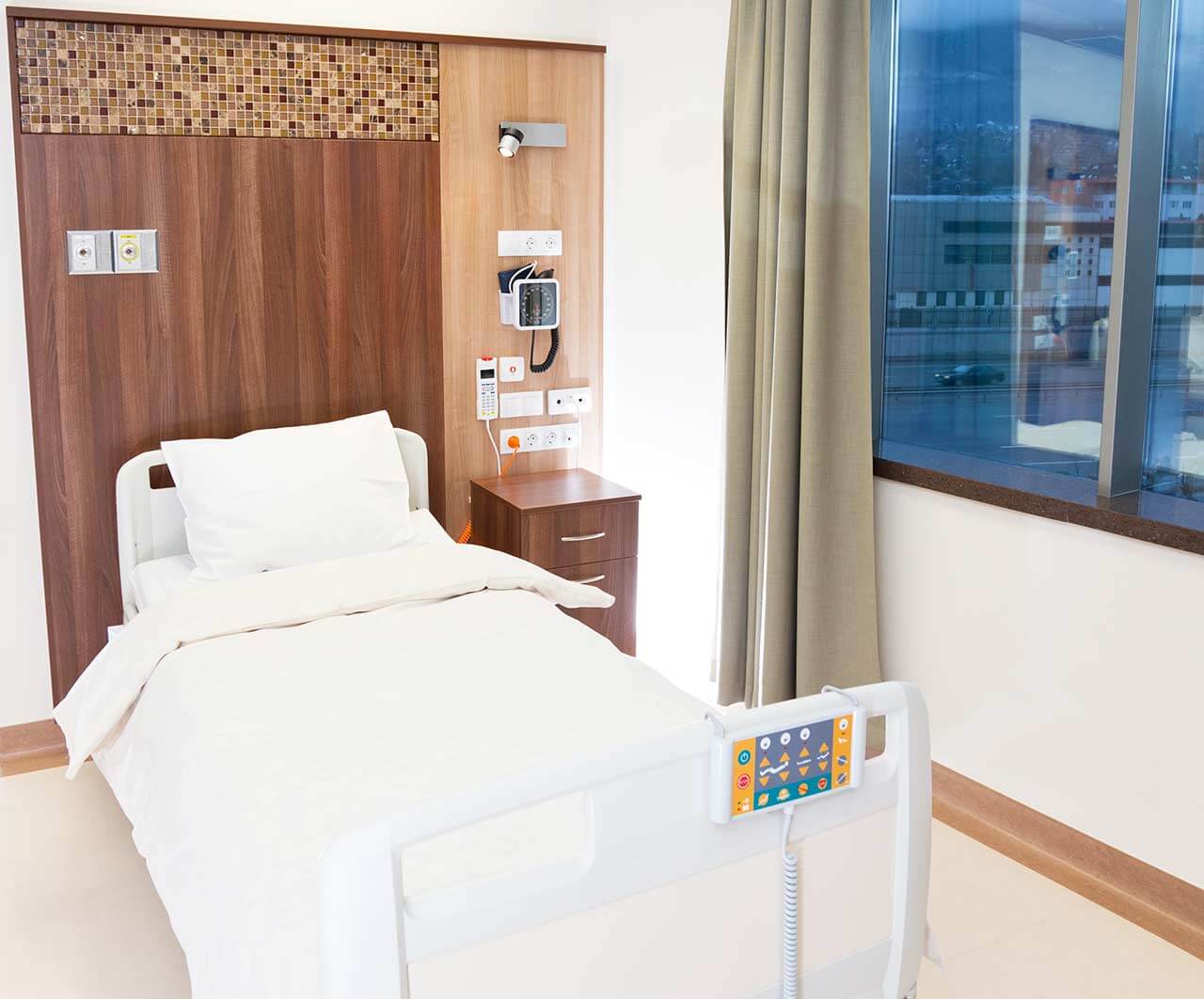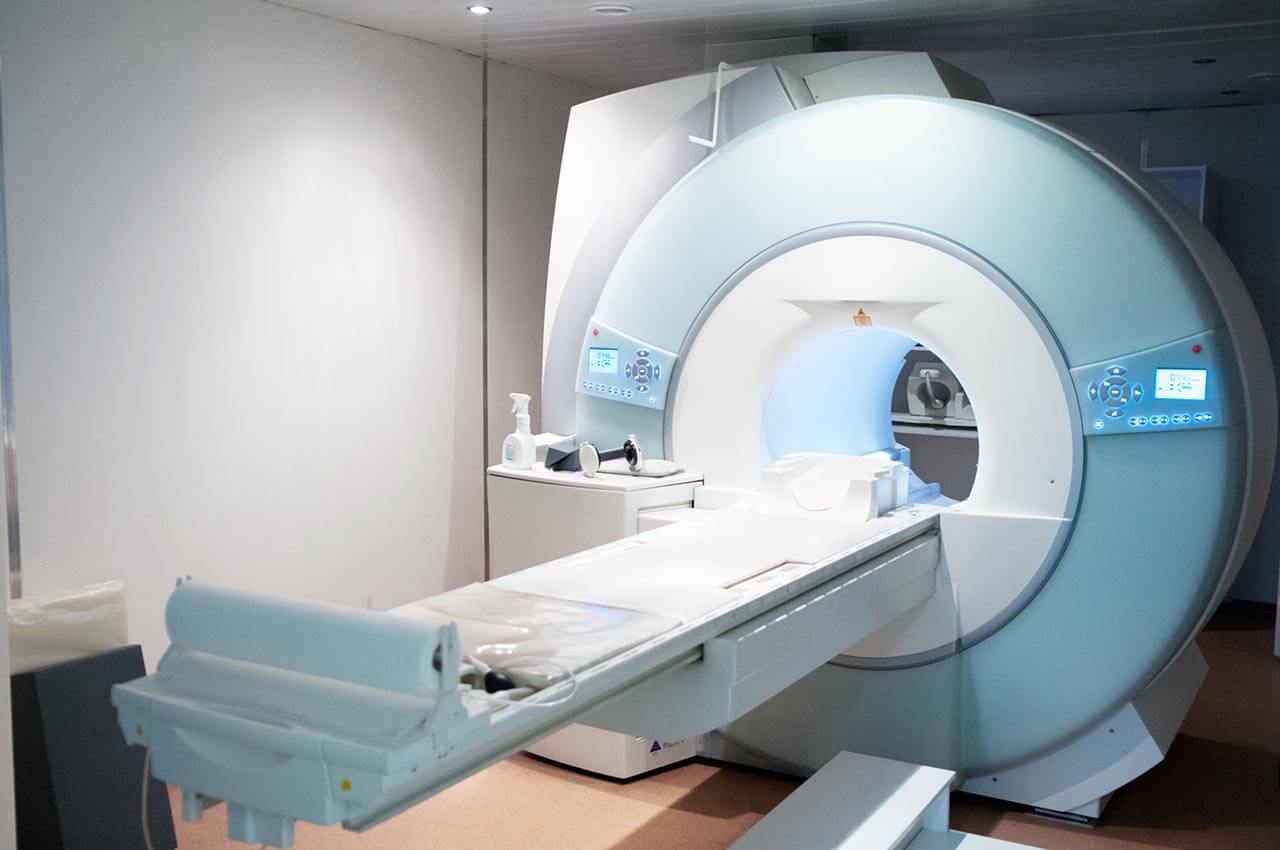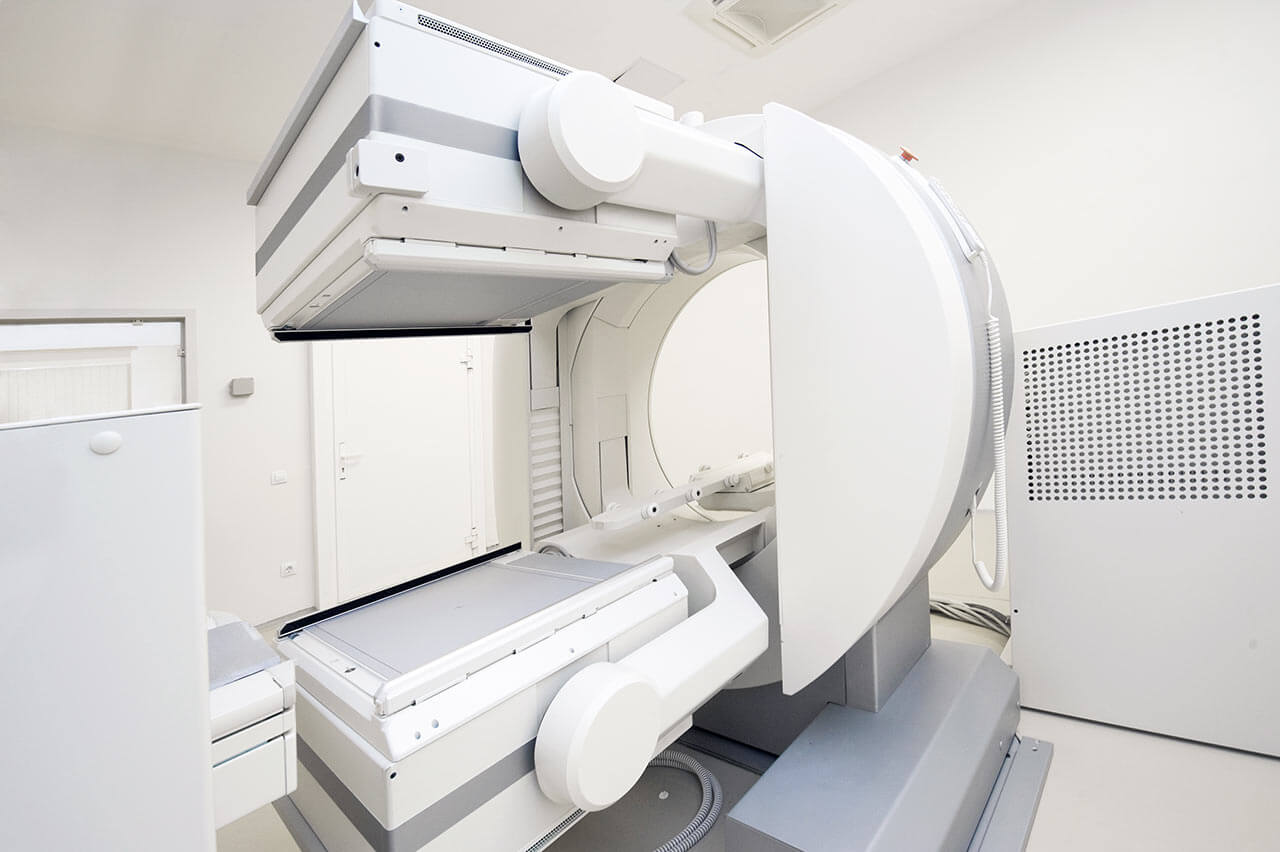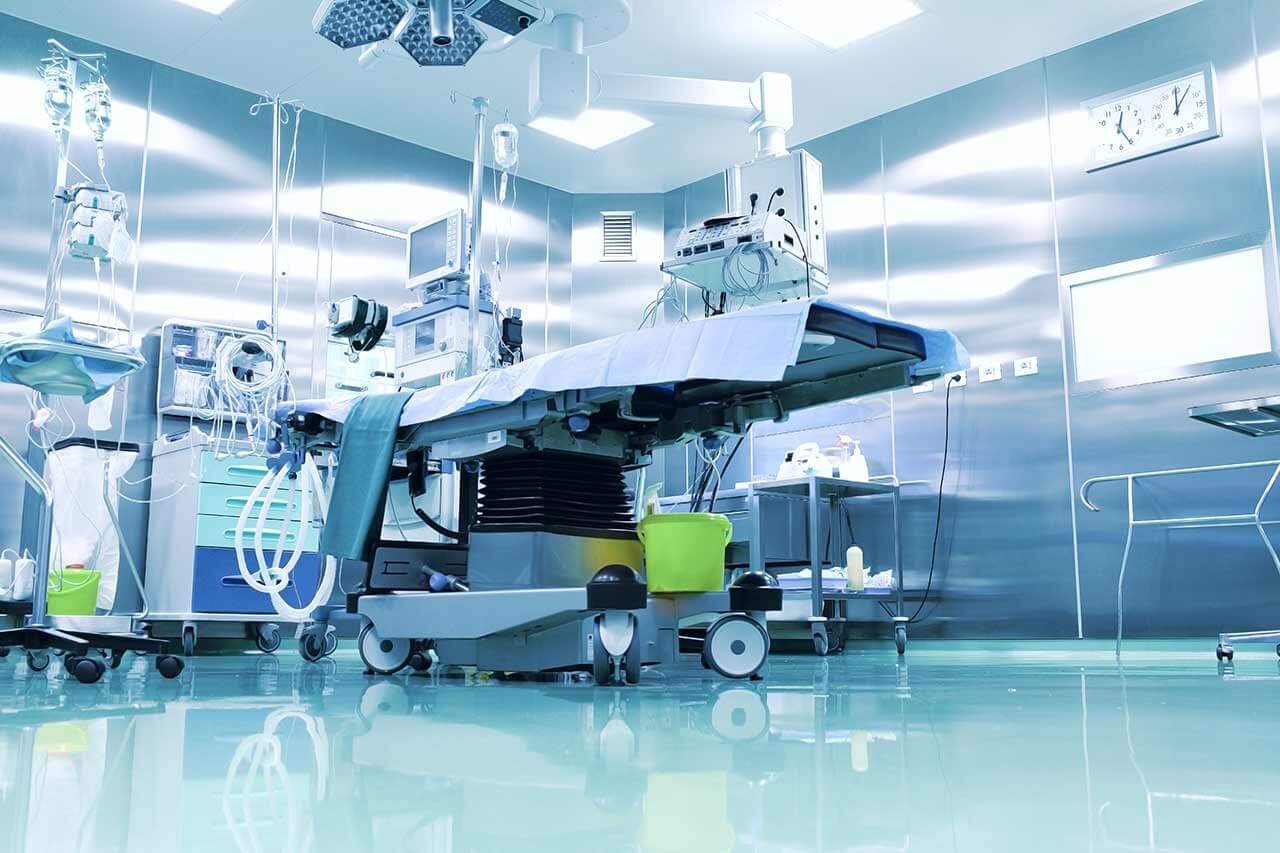
The program includes:
- Initial presentation in the clinic
- clinical history taking
- review of medical records
- physical examination
- laboratory tests:
- complete blood count
- biochemical blood test
- inflammation markers (CRP, ESR)
- blood coagulation analysis (aPTT, PT, INR)
- ultrasound of the abdomen
- colonoscopy and gastroscopy with biopsy
- MRI of the abdomen (if indicated clinically, additional cost is 1200€)
- nursing services
- nutrition recommendations
- services of all leading experts
- explanation of individual treatment plan
Required documents
- Medical records
- Colonoscopy (if available)
Service
You may also book:
 BookingHealth Price from:
BookingHealth Price from:
About the department
The Department of Gastroenterology, Endocrinology, Metabolism and Clinical Infectology at the University Hospital Marburg UKGM offers all the options of modern medicine for the diagnostics and treatment of benign and malignant diseases of the digestive system, liver, endocrine glands, as well as metabolic disorders and infectious diseases. In addition, the department enjoys an excellent reputation in the treatment of neuroendocrine tumors. The department operates an Endoscopy Section, a Section for Functional Diagnostics of the Endocrine Glands and many specialized Outpatient Clinics. There are 62 beds available for inpatient treatment. The Chief Physician of the department is Prof. Dr. med. Thomas Mathias Gress.
One of the most important focuses of the department’s work is interventional endoscopy of the gastrointestinal tract. The department performs minimally invasive diagnostic and therapeutic procedures. The therapy with the help of endoscopic techniques avoids open surgical interventions. The department’s doctors often carry out procedures to resect gastrointestinal tumors in the early stages, for example, polyps and adenomas. The Endoscopy Section also diagnoses and treats diseases of the bile ducts and pancreas. For example, video cholangioscopy allows for the examination of bile ducts and pancreatic ducts using the advanced digital mini-endoscopes. This method is effective for the diagnostics of stenosis and non-invasive removal of stones from the bile ducts. Stones in the bile duct are crushed using shock wave therapy, and then removed endoscopically. The spectrum is complemented by photodynamic therapy and endoscopic radiofrequency ablation of bile duct tumors, diagnostics and treatment using endoscopic ultrasound.
The department focuses on patients with malignancies of the digestive system, in particular, pancreatic, liver, gallbladder, bile duct tumors and neuroendocrine tumors (the department is certified as the European Center of Excellence for Neuroendocrine Tumors, the Center for Bowel Cancer and Pancreatic Cancer). The department’s specialists also have exceptional experience in the treatment of chronic inflammatory bowel diseases, inflammatory diseases of the pancreas and liver.
In the field of endocrinology of particular interest is the treatment of type 1 and type 2 diabetes mellitus, gestational diabetes mellitus and other forms of pathology, osteoporosis, dyslipidemia, obesity, thyroid gland and parathyroid diseases, adrenal gland diseases, etc. To make an accurate diagnosis, the department uses the very latest examinations, such as ultrasound studies, endosonography, bone mineral density measurement, bioimpedansometry, functional laboratory tests, hormonal tests and others.
The department’s range of medical services includes:
Gastroenterology, metabolic disorders, clinical infectology and gastroenterological oncology
- Diagnostics and treatment of gastrointestinal tumors (esophageal, stomach, intestinal tumors), as well as liver, biliary tract and pancreatic tumors
- Diagnostics and treatment of neuroendocrine tumors
- Diagnostics and treatment of pancreatic diseases
- Diagnostics and treatment of chronic inflammatory bowel diseases (ulcerative colitis and Crohn's disease)
- Diagnostics and treatment of esophageal diseases
- Diagnostics and treatment of liver and biliary tract diseases
- Diagnostics and treatment of chronic viral hepatitis B and C using modern treatment regimens
- Diagnostics and treatment of toxic lesions and secondary liver diseases
- Diagnostics and treatment of benign and malignant liver tumors
- Diagnostics and treatment of autoimmune diseases of the liver and biliary tract
- Diagnostics and treatment of congenital metabolic disorders (hemochromatosis, Wilson's disease)
- Special gastroenterological laboratory diagnostics
- Ultrasound diagnostics, including contrast-enhanced ultrasound, dopplerography and duplex sonography
- Liver biopsy
- Endoscopic procedures
- Functional diagnostics
- Esophageal manometry
- 24-h esophageal pH-metry
- 13C urea breath test to diagnose Helicobacter pylori infection
- 13C octanoic acid breath test for gastric emptying
- Hydrogen breath test to diagnose lactose intolerance
- Hydrogen breath test to diagnose lactulose intolerance
- Hydrogen breath test to diagnose glucose intolerance
- Hydrogen breath test to diagnose xylose intolerance
- Endoscopic diagnostic and therapeutic procedures
- Esophagogastroduodenoscopy
- Diagnostics and tissue sampling (for example, in case of pain in the upper abdomen, anemia)
- Tumor removal (in the early stages) using endoscopic mucosal resection and endoscopic submucosal dissection
- Bleeding treatment
- Treatment of esophageal varicose veins
- Stenosis treatment
- Stenting
- Installation of transdermal and transnasal nutritional probes
- Removal of probes installed with the help of PEG
- Colonoscopy
- Preventive examinations
- Removal of tumors and polyps using endoscopic mucosal resection and endoscopic submucosal dissection
- Bleeding treatment
- Stenosis treatment
- Stenting
- Monitoring of chronic inflammatory bowel diseases
- Control examinations in dynamics
- Endoscopic retrograde cholangiopancreatography
- Removal of stones from the bile ducts and pancreas
- Treatment of stenosis of the bile ducts and pancreatic ducts by dilatation and stenting
- Endoscopic therapy for primary sclerosing cholangitis
- Photodynamic therapy or radiofrequency ablation for palliative treatment of bile duct tumors
- Cholangioscopy (Spyglass method) with biopsy for the diagnostics of bile duct obstruction of unknown cause and electrohydraulic lithotripsy for large stone fragmentation
- Endoscopic ultrasound
- Diagnostics of inflammatory and malignant diseases of the gastrointestinal tract
- Fine-needle aspiration biopsy of lymph nodes and tumors
- Drainage of abscesses and pancreatic cysts, as well as the removal of necrotic tissue under the guidance of endoscopic ultrasound
- Drainage of the biliary tract and gallbladder under the guidance of endoscopic ultrasound
- Percutaneous transhepatic cholangiodrainage
- Bile diversion and treatment of benign or malignant stenosis
- Transdermal gallstone removal
- Transhepatic cholangioscopy
- Balloon enteroscopy
- Diagnostics and treatment of diseases of the small intestine with tissue sampling and sclerotherapy for blood vessels
- Endoscopic retrograde cholangiopancreatography with balloon enteroscopy after previous surgery to remove stones and dilate benign stenosis
- Capsule endoscopy
- Examination of the small intestine using a mini-camera for bleeding of unknown origin, inflammatory changes, tumors
- Mini laparoscopy
- Esophagogastroduodenoscopy
- Other diagnostic and therapeutic services
Endocrinology, diabetology and osteology
- Diagnostics and treatment of diabetes mellitus type 1 and 2
- Diagnostics and treatment of gestational diabetes
- Diagnosis and treatment of other forms of diabetes (for example, due to Cushing's syndrome)
- Diagnostics and treatment of osteoporosis
- Diagnostics and treatment of dyslipidemia
- Diagnostics and treatment of obesity
- Diagnostics and treatment of thyroid diseases
- Diffuse euthyroid non-toxic goiter
- Thyrotoxicosis syndrome
- Diffuse toxic goiter (Graves’ disease)
- Endocrine ophthalmopathy
- Hypothyroidism
- Thyroiditis
- Benign thyroid tumors
- Thyroid malignancies
- Thyroid problems in case of infertility
- Diagnostics and treatment of pituitary diseases
- Diagnostics and treatment of hereditary endocrine tumors (multiple endocrine neoplasia)
- Diagnostics and treatment of diseases of the exocrine pancreas
- Insulinomas
- Gastrinomas
- VIPoma (Verner-Morrison syndrome)
- Glucagon
- Diagnostics and treatment of diseases of the genital glands (gonads)
- Primary hypogonadism (in men)
- Amenorrhea (in women)
- Polycystic ovary syndrome
- Hormone-active ovarian tumors
- Diagnostics and treatment of adrenal diseases
- Chronic primary adrenocortical insufficiency (Addison's disease)
- Acute adrenal insufficiency
- Cushing's syndrome
- Primary hyperaldosteronism (Conn syndrome)
- Adrenogenital syndrome
- Adrenal adenoma
- Adrenal cancer
- Diagnostics and treatment of diseases of the adrenal medulla
- Pheochromocytoma
- Autoimmune polyglandular syndrome
- Diagnostics and treatment of other diseases
Photo of the doctor: (c) UKGM - Universitätsklinikum Gießen und Marburg GmbH
About hospital
The University Hospital Marburg UKGM offers patients modern diagnostics and comprehensive therapy at the international level. As a maximum care hospital, the medical facility specializes in all fields of modern medicine ranging from ophthalmology to traumatology and dentistry. The main areas of specialization of the hospital are surgery, neurosurgery, oncology, nephrology with kidney transplantation and children's medicine.
The hospital is the third largest in Germany. Every year, more than 436,000 patients are treated in two locations of the hospital (Giessen and Marburg): 342,000 in outpatient and 94,000 inpatient settings. The medical facility is the first privatized university hospital in the country.
The hospital staff makes a significant contribution to the development of research activities at the Faculty of Medicine of the Justus Liebig University Giessen and the Philipps University of Marburg. To develop new diagnostic and therapeutic methods, as well as to implement them into clinical practice, the specialists maintain active cooperation in a large number of areas.
The widest range of diagnostic and therapeutic services, the advanced infrastructure and technical base, high quality of treatment and professionalism of health workers contribute to the fact that the medical facility has an excellent reputation not only in Germany, but also far beyond its borders.
Photo: (c) depositphotos
Accommodation in hospital
Patients rooms
The patients of the University Hospital Marburg UKGM live in comfortable single and double rooms made in a modern design and light colors. Each room has an ensuite bathroom with shower and toilet. The pediatric departments provide patient rooms for the joint accommodation of mother and child. The standard room furnishing includes an automatically adjustable bed, bedside table, wardrobe, TV, telephone.
Meals and Menus
The patients of the hospital are offered balanced, healthy three meals a day: buffet breakfast, lunch and dinner. The private kitchen, certified according to DIN EN ISO 9001: 2000, is responsible for providing patients with food and drinks.
If for some reason you do not eat all foods, you will be offered an individual menu. The hospital also has a cafeteria with a large assortment of hot and cold drinks, snacks and desserts.
Further details
Standard rooms include:
Television
All patient rooms are equipped with TV sets. If you have some questions about TV use, please contact medical personnel.
Religion
Religious services can be provided upon request.
Accompanying person
During an inpatient program, an accompanying person can stay with you in a patient room or in a hotel of your choice.
Hotel
During the outpatient program, you can stay at the hotel of your choice. Our managers will help you choose the most suitable option.






